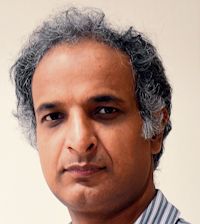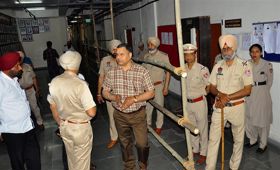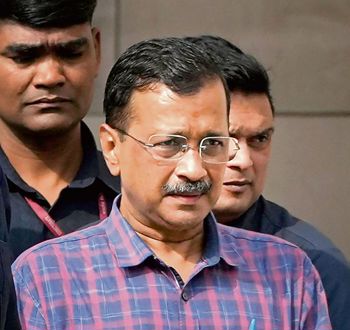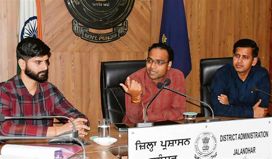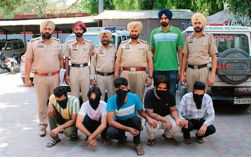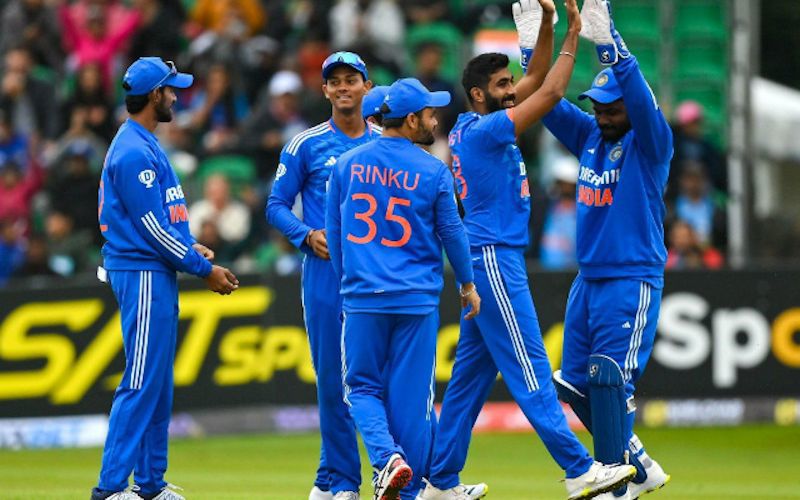
File photo: Seb Daly/Sportsfile via Getty Images
As democracy begins its dance, xenophobia begins to peak — as do various other phobias of distrust of the ‘other’. The fear of the stranger can be explained in evolutionary terms. In his book ‘Snakes, Sunsets, and Shakespeare’, evolutionary biologist Gordon Orians says: “Throughout human history, we have distrusted people outside our clan, our tribe… We believe strangers will do us harm. Why? In deep time, hominids outside the family group were likely to be a raiding party.”
We’re not living in ancient times now, of course, and wars and raids across the borders are very, very rare; we now know meetings with strangers often go very well — in foreign lands, two persons, each a stranger to the other, are often at their best behaviour because they believe themselves to be representatives of their tribe/country. We also know that danger often lurks at home, in the shape of predators who may sexually exploit the young, or relatives who may covet property or other possessions. It’s not the stranger who’s the biggest danger when you’re seemingly safe.
Sport, the celebration of extreme athleticism and teamwork, chips at xenophobia and racism of an athlete, reducing it to dust; but the fans, roused by tribal feelings for their team, often turn despicable bigots.
This writer has heard chants of ‘go back to your country’ — peppered with unprintable expletives — spat by home team fans at Indian and Pakistani fans in cricket grounds of England and Australia; or horrible exchanges between Brazilian and Argentinean football fans in Rio de Janeiro; West Indian players called ‘kalu’ by fans in Indian grounds — and a black England player called ‘kaliya’ in an England ground! During the IPL, Indian teammates of Daren Sammy, the former West Indies captain, used to call him ‘kalu’, and he believed it to be a term of endearment.
Indian sportspersons have spoken about racism — colourism, rather — in sport. Abhinav Mukund, the Tamil Nadu cricketer who has played for India, spoke of being stigmatised for his dark skin: “Over the years, it has become normal to be called ‘blacky’.” Bhaskar Pillay, possibly the last genius of Indian hockey, said a few years ago: “I was in a team of beautiful players... I saw that I didn’t look like them, I was dark. I felt even worse when we travelled away, to Australia and Europe, because everyone is so fair. You feel inferior in a social situation... Even now, at red-carpet events, people treat you differently, the organisers, the media.”
Religious tribalism drives hatred, too. In October 2021, Mohammed Shami was horribly trolled after India’s defeat to Pakistan in the T20 World Cup; unsurprisingly, then captain Virat Kohli denounced the “spineless” trolls in the strongest possible language for “attacking someone over their religion”.
Casteism, another sickness of Indian society and, thus, democracy, afflicts sport, too. Cricketer Suresh Raina has spoken about how his (high) caste made it easier for him to embrace Chennai’s culture; Yuvraj Singh was arrested briefly in 2021 after making offensive remarks against the SC community; in 2022, during a Test between India and Bangladesh, an Indian player was heard calling a teammate ‘chhapri’ — a derogatory term for persons from an oppressed caste, Chapparband.
Ending the notion of strangeness of strangers is the antidote to xenophobia. Sport, and travelling to follow sport, helps that — exiting echo chambers is a privilege that must not be missed, for it emancipates the mind.
The first Pakistanis I met were teenaged tennis players who were in Chandigarh to play in a tournament over three decades ago; they were affable and funny and it was easy to chat with them in Hindi or Punjabi — but it was practically impossible to talk with our own Leander Paes because of the language barrier. The realisation dawned early, then — the stranger from an enemy country wasn’t such a stranger, after all.
Chatting with Bangladesh cricket fans during a World Cup match in Melbourne in 2015, this writer was urged by them to pray for their country’s win; they were visibly shocked to learn that they were dealing with an atheist, who last prayed some 25 years previously. They were able to absorb the shock, however, and their friendliness didn’t turn to disgust. Strangers with diametrically opposite worldviews can get along well.
Religion and nationalism and sport can make a dangerous brew, and people often go to stadia not to enjoy the contest, but to let out the rage and toxicity work, family, society — life — create in them.
In representative democracy, leaders symbolise society’s infirmities and strengths, but do the 88% crorepati MPs (2019 Lok Sabha) truly represent our society in which 90% population earns less than Rs 3 lakh a year? That Lok Sabha had 22% MPs facing serious criminal charges — it seems politics attracts and rewards individuals of a certain kind, who stop at nothing in pursuit of power and money.
As happens often in sport, during elections there’s an outpouring of toxicity, with parties stoking fear — fear of being swamped, robbed, dispossessed, displaced by the ‘other’.
But do vote, for in it lies our only hope.
Join Whatsapp Channel of The Tribune for latest updates.






